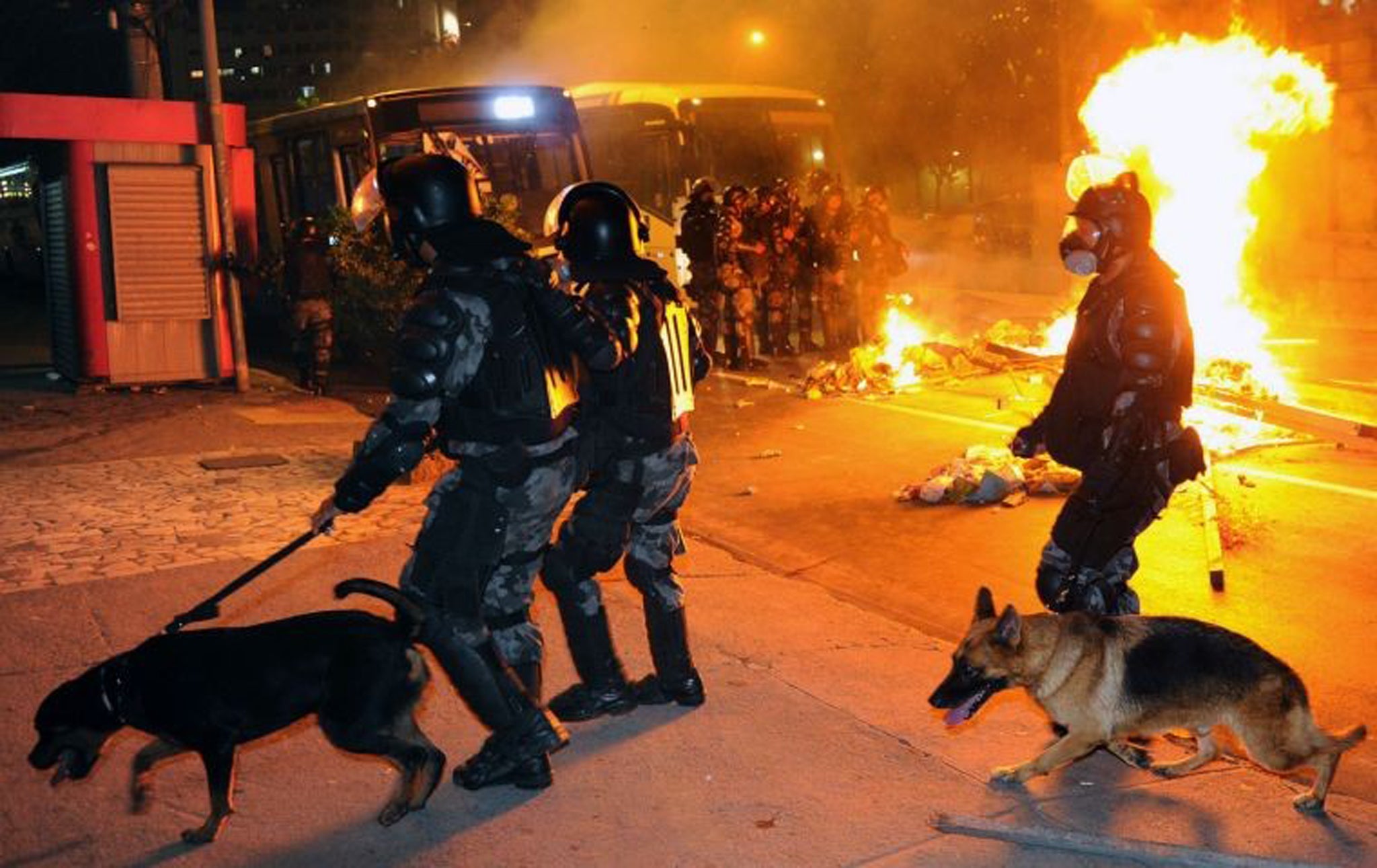Brazil riots latest: Protests continue at Confederations Cup matches despite Rio and Sao Paulo leaders agreeing to reverse public transport fare hikes
Riot police use gas bombs and pepper spray to quell protesters in the northern city of Fortaleza

Your support helps us to tell the story
From reproductive rights to climate change to Big Tech, The Independent is on the ground when the story is developing. Whether it's investigating the financials of Elon Musk's pro-Trump PAC or producing our latest documentary, 'The A Word', which shines a light on the American women fighting for reproductive rights, we know how important it is to parse out the facts from the messaging.
At such a critical moment in US history, we need reporters on the ground. Your donation allows us to keep sending journalists to speak to both sides of the story.
The Independent is trusted by Americans across the entire political spectrum. And unlike many other quality news outlets, we choose not to lock Americans out of our reporting and analysis with paywalls. We believe quality journalism should be available to everyone, paid for by those who can afford it.
Your support makes all the difference.Mass protests continued across Brazil last night despite leaders of the country's two biggest cities saying that they would reverse the increase in bus and subway fares that ignited the week-long demonstrations in the first place.
Both the mayors of Rio de Janeiro and the country's largest city Sao Paulo pledged to reverse the hike, with the Sao Paulo leader Fernando Haddad saying at a press conference that the U-turn "will represent a big sacrifice and we will have to reduce investments in other areas."
However, many are doubting that the move will quiet demonstrations - which have moved on from the outrage over the fare hikes and onto general cries against poor public services and corruption in the run up to 2014's World Cup - and protests continued throughout the country yesterday evening.
"It's not really about the price anymore," said Camila Sena, an 18-year-old university student at a protest in Rio de Janeiro's sister city of Niteroi. "People are so disgusted with the system, so fed up that now we're demanding change."
Small groups of protesters clashed with police in Niteroi late yesterday, while demonstrators staged a large march in the capital of Brasilia that included a new demand that the government provide free transit services.
Earlier in the day, about 200 people blocked the Anchieta Highway that links Sao Paulo, the country's biggest city, and the port of Santos before heading to the industrial suburb of Sao Bernardo do Campo on Sao Paulo's outskirts. Another group of protesters later obstructed the highway again.
In the northeastern city of Fortaleza, 15,000 protesters clashed with police trying to prevent them from reaching the Castelao stadium before Brazil's game with Mexico in the Confederations Cup soccer tournament.
Riot police used gas bombs and pepper spray to keep protesters from advancing past a barrier around 2 miles from the stadium. A police car was burned by demonstrators, who also threw rocks and other objects at officers. The protest disrupted fans' efforts to get in the stadium for Brazil's second match at the World Cup warm-up tournament.
Soldiers from Brazil's elite National Force were sent earlier this week to Fortaleza, Rio, Belo Horizonte, Salvador and Brasilia to bolster secuirty during the tournament.
Fifa president Sepp Blatter urged protesters to stop linking their anger against the government to the Confederations Cup. The cost of building stadiums for the FIFA tournaments has been a regular complaint at marches.
In an interview with Brazil's Globo TV network, Blatter said he could "understand that people are not happy, but they should not use football to make their demands heard."
"We did not impose the World Cup on Brazil," he said.
Many now protesting in Brazil's streets hail from the country's growing middle class, which government figures show has ballooned by some 40 million people over the past decade amid a commodities-driven economic boom.
The protesters say they've lost patience with endemic problems such as government corruption and inefficiency. They're also slamming Brazil's government for spending billions of dollars to host the World Cup and Olympics while leaving other needs unmet.
Join our commenting forum
Join thought-provoking conversations, follow other Independent readers and see their replies
Comments